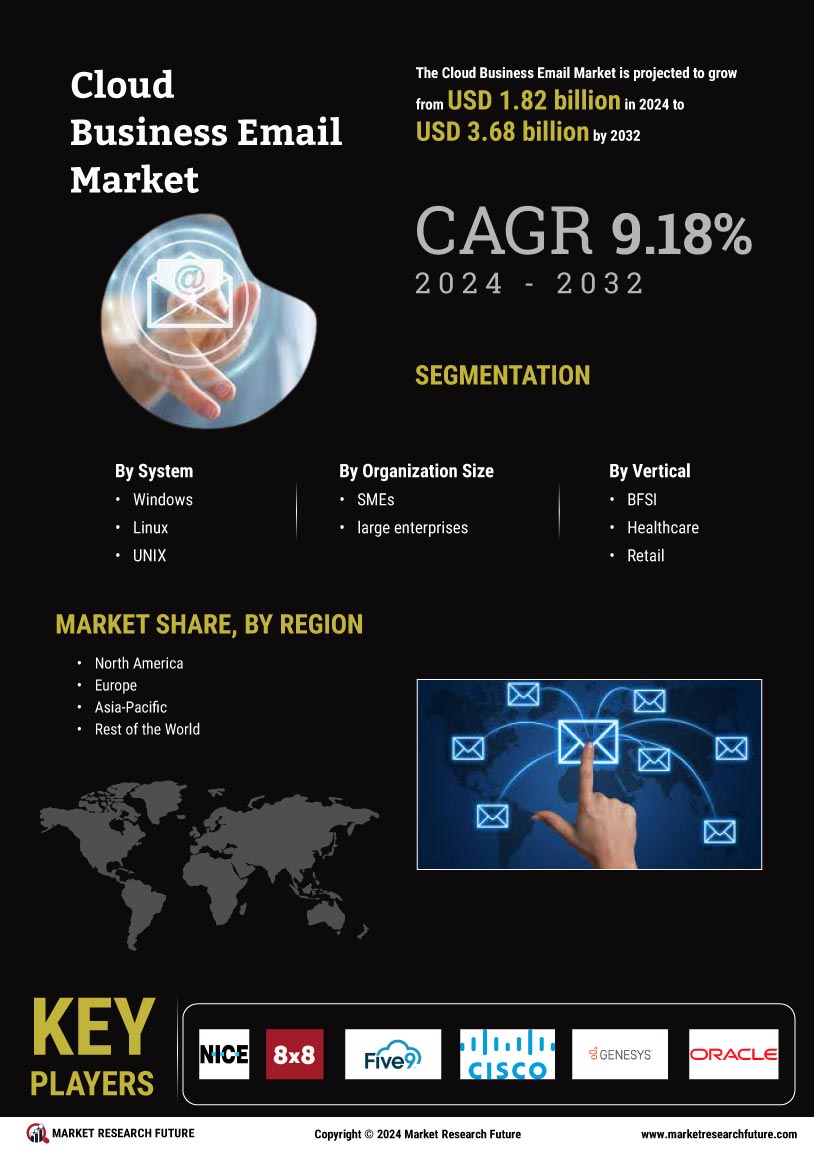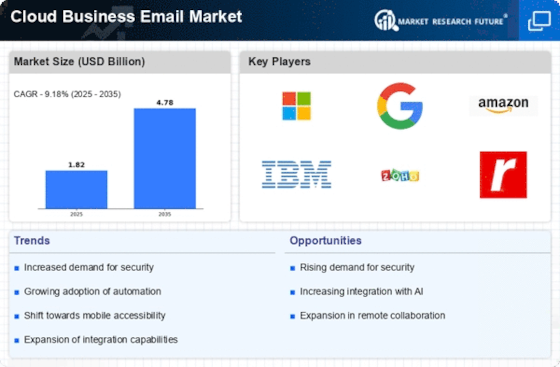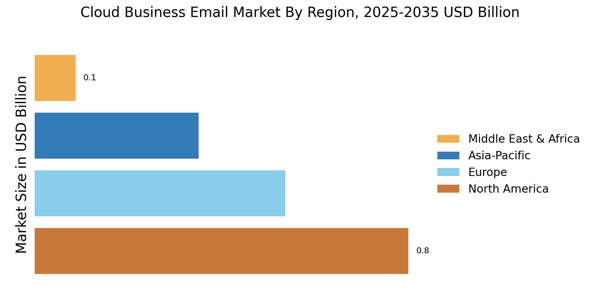The Cloud Business Email Market is currently characterized by a dynamic competitive landscape, driven by rapid technological advancements and an increasing demand for secure, scalable communication solutions. Major players such as Microsoft (US), Google (US), and Zoho (IN) are at the forefront, each adopting distinct strategies to enhance their market positioning. Microsoft (US) continues to leverage its extensive ecosystem, integrating its email services with productivity tools like Microsoft 365, thereby fostering user retention and engagement. Google (US), on the other hand, emphasizes innovation through its AI-driven features in Google Workspace, aiming to streamline user experience and enhance collaboration. Meanwhile, Zoho (IN) focuses on affordability and customization, appealing to small and medium-sized enterprises (SMEs) seeking tailored solutions. Collectively, these strategies contribute to a competitive environment that is increasingly focused on user-centric innovations and integrated service offerings.In terms of business tactics, companies are increasingly localizing their services to cater to regional preferences and regulatory requirements. This localization, coupled with supply chain optimization, is essential in a market that appears moderately fragmented, with numerous players vying for market share. The collective influence of key players shapes the market structure, as they engage in strategic partnerships and collaborations to enhance their service offerings and expand their geographical reach.
In August Microsoft (US) announced the launch of a new security feature for its Outlook platform, aimed at enhancing data protection for enterprise users. This strategic move underscores Microsoft's commitment to addressing growing concerns around cybersecurity, particularly as businesses increasingly migrate to cloud-based solutions. By prioritizing security, Microsoft not only strengthens its competitive edge but also reassures clients about the safety of their communications.
In September Google (US) unveiled a significant update to its Google Workspace, incorporating advanced AI capabilities that facilitate smarter email management and automated responses. This development is indicative of Google's strategy to maintain its leadership in innovation, as it seeks to differentiate its offerings in a crowded market. The integration of AI not only enhances user experience but also positions Google as a forward-thinking player in the realm of cloud business email.
In July Zoho (IN) expanded its The Cloud Business Email Market with a localized version of its email services. This strategic expansion reflects Zoho's focus on catering to SMEs in diverse regions, thereby enhancing its competitive positioning. By offering tailored solutions that align with local business practices, Zoho is likely to capture a significant share of the European market, further diversifying its customer base.
As of October the Cloud Business Email Market is witnessing trends that emphasize digitalization, sustainability, and the integration of AI technologies. Strategic alliances among key players are increasingly shaping the competitive landscape, as companies collaborate to enhance their service offerings and address evolving customer needs. Looking ahead, it appears that competitive differentiation will increasingly pivot from price-based strategies to a focus on innovation, technological advancements, and the reliability of supply chains. This shift suggests that companies that prioritize these elements are likely to thrive in an ever-evolving market.


















